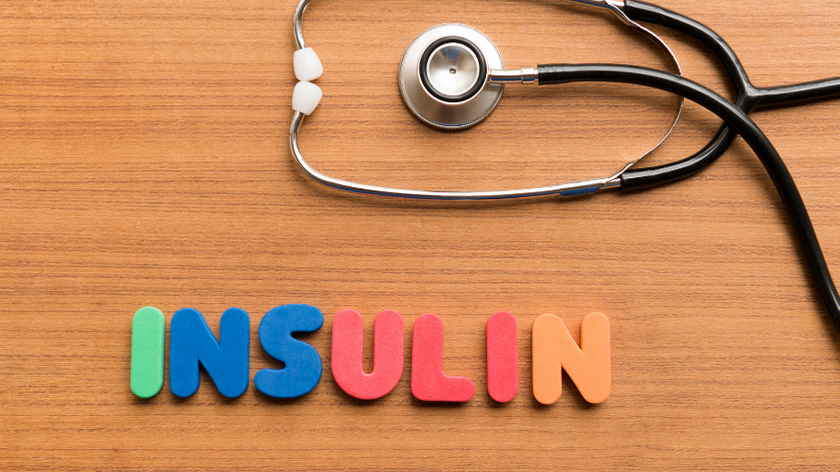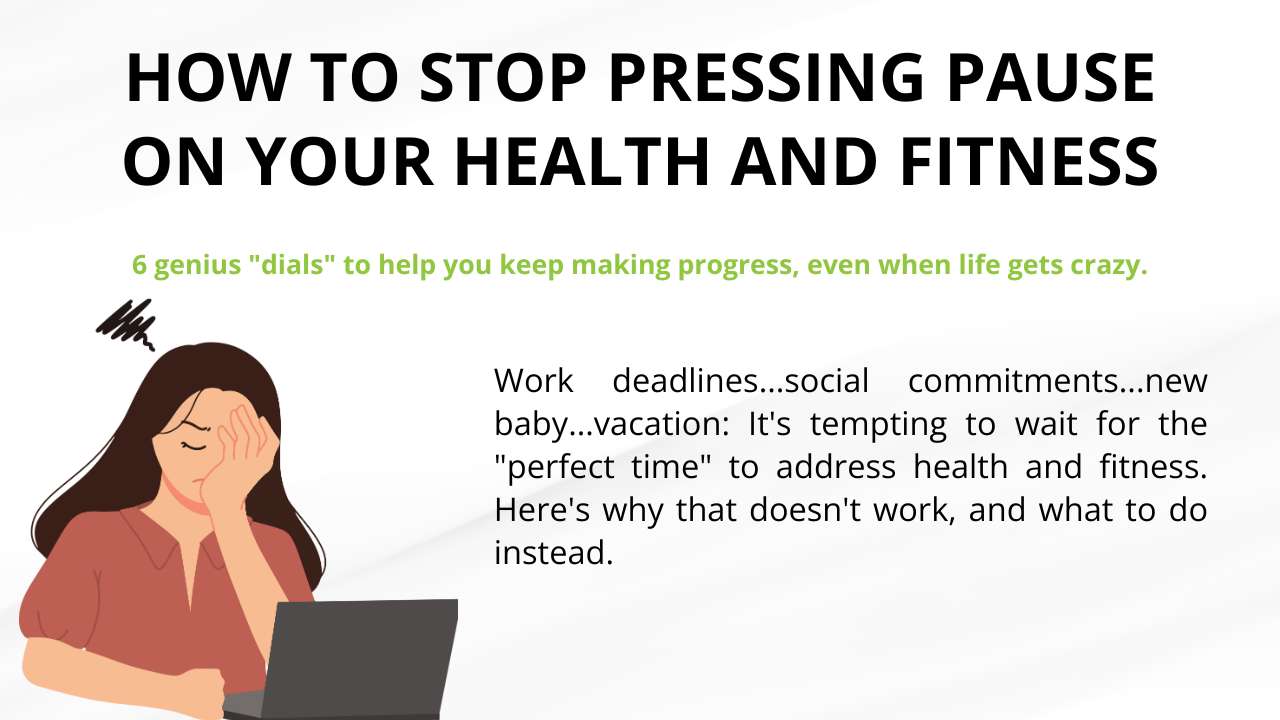Insulin and carbs: Partners in crime?
To fully understand the carbohydrate-insulin model, you have to start with some biology.
When you eat certain carbohydrates—such as starch and sugar—they’re quickly broken down into glucose and absorbed into your bloodstream. This raises your blood glucose levels. (Also called blood sugar levels.)
The more carbohydrates you eat, the higher your blood glucose rises immediately after that meal.
Your body, however, strives to closely regulate your blood glucose levels.
Ever had your fasting glucose measured? You probably know the “normal” range is 70 to 100 mg/dl.
Your body wants to maintain this level of blood glucose, to keep you healthy and all systems functioning optimally.
(For example, chronically elevated blood glucose levels cause inflammation that can damage your blood vessels, kidneys, eyes, and nerves. This is why diabetes can lead to many health complications.)
Enter insulin.
When you eat carbohydrates, and blood glucose rises, your body—specifically your pancreas—releases insulin. That’s because insulin is your body’s key regulator of blood glucose.
Insulin is needed to shuttle glucose from your blood into your muscle and fat cells, where it can be used for energy or stored for later use. 1
Without insulin, your blood glucose levels would stay elevated for a much longer period. And that would be very bad. This is why people with type 1 diabetes must take insulin every day via injections or a pump.
The bottom line? When blood glucose goes up, the insulin goes up.
And remember: If you eat lots of carbs at a meal, your blood glucose and insulin levels go up more than if you eat fewer carbs.
Context matters, too. People respond differently to the same number of carbohydrates based on many factors, including :
- Fitness level
- Body fat
- Genetics
- Microbiome health
- Muscle mass
- How recently, vigorously, and long they’ve exercised
- Time of day
- What else they’re eating (for example, fat and fiber—another type of carbohydrate—can slow the absorption of glucose, blunting the insulin response, while certain proteins can increase the insulin response.)
Typically, the leaner and more active a person, the more sensitive their cells are to insulin. (Known as insulin sensitivity.) Meaning, they need less insulin to move glucose out of their bloodstream.
This is one reason why fit people “tolerate” carbs better than sedentary folks. They usually even benefit from more carbs, to aid performance and recovery.
Why insulin can be a problem
As we’ve noted, when your body is functioning normally, glucose and insulin are in lockstep. When blood glucose rises, just enough insulin is released to bring glucose back into the normal range.
But there’s also a scenario where you can have too much insulin. This is generally thought to happen when your cells become resistant to insulin, a condition known as insulin resistance, a precursor to type 2 diabetes.
With insulin resistance, a greater amount of insulin is needed to get the same amount of glucose into your cells. And as the condition worsens over time, insulin levels can remain elevated even when you haven’t eaten anything. (This is called hyperinsulinemia.)
We don’t know exactly why insulin resistance happens. It’s mainly thought to be caused by chronically-elevated levels of fatty acids in your bloodstream.5
(Insulin resistance is also related to a host of factors including genetics, ethnicity, sleep, exercise habits, smoking habits, and more.)
What we do know is that people who are obese—particularly those with higher amounts of visceral fat (the deep abdominal fat that surrounds several vital organs)—are more likely to be insulin resistant.
We also know losing excess body fat often resolves insulin resistance.
Now that you have the background, let’s dive into the first question…
Does insulin stop you from burning fat?
Not exactly. But insulin does influence the rate your body burns fat.
That’s because, in addition to insulin’s role as the key regulator of blood glucose, it’s well-known that:
Insulin inhibits lipolysis.
During lipolysis [lie-PAWL-uh-siss], stored fatty acids are moved out of your fat cells and into your bloodstream, where they can be used for energy.
When this process is inhibited—as it is when insulin levels are high—fewer fatty acids are available to fuel your muscles and other metabolically active tissues. Because of this, many people equate insulin spikes with “turning off” your body’s ability to burn fat.
Insulin stimulates lipogenesis.
During lipogenesis [lie-POE-jen-uh-siss], fatty acids are moved from your bloodstream into your fat cells, where they’re stored for later use. This is often referred to as being in “fat storage mode”—something most people try to avoid.
What’s more, lipogenesis can also cause carbs to be converted to and stored as fat (known as de novo lipogenesis, or DNL). It’s important to note, though: DNL only happens in meaningful amounts when there’s an overall surplus of carbs and calories. (That is, you consistently eat more calories than you burn.)
As a result of all these effects, you might conclude that insulin is a real problem for fat loss.
So it’s worth saying:
Insulin’s purpose isn’t to make you fat.
Insulin inhibits lipolysis because you just consumed nutrients, specifically carbohydrates and/or protein. And it’s more efficient for your body to use those incoming nutrients for energy than to liberate stored nutrients for energy.
Think of it this way: If you have $100 in your pocket, and you want to buy $25 in groceries, you wouldn’t go to the ATM for more cash. You’d use the money already in your pocket.
Similarly, why would your body release stored fat into your bloodstream for energy when there’s plenty of incoming energy already available?
Also, at any given time, there’s a complex interplay of hormones and enzymes that can counteract, limit, or enhance the effect of any single chemical, including insulin.
For instance, while insulin inhibits lipolysis (fat burning), other hormones—which are active at the same time—stimulate lipolysis. Examples:
- Glucagon
- Epinephrine
- Norepinephrine
- Growth hormone
- Cortisol
Furthermore, while insulin stimulates lipogenesis (fat storage), other active hormones—leptin, growth hormone, and acute increases in cortisol—inhibit lipogenesis.
These hormones don’t completely disappear from your body in the presence of insulin. They have important jobs, too, and can modulate the effects of insulin.
For instance, while carbohydrate is the major macronutrient impacting insulin, protein also significantly stimulates insulin secretion. Yet protein is generally thought to contribute positively to body composition improvements.
Some hypothesize this is because protein also stimulates production of the hormone glucagon, thus negating the effect of insulin.
Whatever the case, the impact of insulin on metabolism isn’t straightforward: It’s tempered by many other factors.
Instead of thinking about the effects of insulin—or any of these hormones—as an on-off button, picture a dimmer switch.
Your body is constantly adjusting its hormonal dials, not based solely on food intake, but also on thousands of other inputs and processes you aren’t even aware of.
The upshot: When your insulin levels are high, you’ll burn less fat for energy than when your insulin levels are low. But you won’t stop burning fat altogether.
You’ll preferentially burn carbohydrates for energy instead.
So…
The real question isn’t whether insulin stops you from burning fat. It’s whether insulin stops you from losing fat.
Here’s what we can say with confidence: There’s zero scientific evidence to suggest you’ll gain weight if your energy intake is less than your energy expenditure. (Not counting short-term changes in body water, of course.)
Or put another way: Insulin itself doesn’t cause weight gain. You also need to eat more calories than you expend.
Remember, in healthy people, the increase in insulin after a meal only lasts a few hours. Then it returns to baseline, allowing fat burning to throttle up again.
If energy intake is lower than energy expenditure, insulin will stay low for long periods throughout the day and night. This permits fat burning to occur at full effect despite short periods of fat-burning inhibition.
So, if you initiate a diet to lose fat, you can accomplish that with or without carbs.
It doesn’t matter what you believe about insulin, carbohydrates, or fat.
That might sound extreme, but what you believe doesn’t change what’s needed to lose fat and keep it off:
1) Eat less energy than you expend
2) Develop eating, exercise, and stress-management habits that are sustainable long-term
3) If a low-carb diet helps you do that, great.
4) If a low-fat diet helps you do that, right on.
5) If a diet with a relatively equal balance of carbs, fat, and protein suits you better, that works too.
6) Paleo, plant-based, Mediterranean, keto, you name it: They’re all viable and can be effective, depending on your personal preferences, lifestyle, and needs.
Start your free trial today :





